Introduction
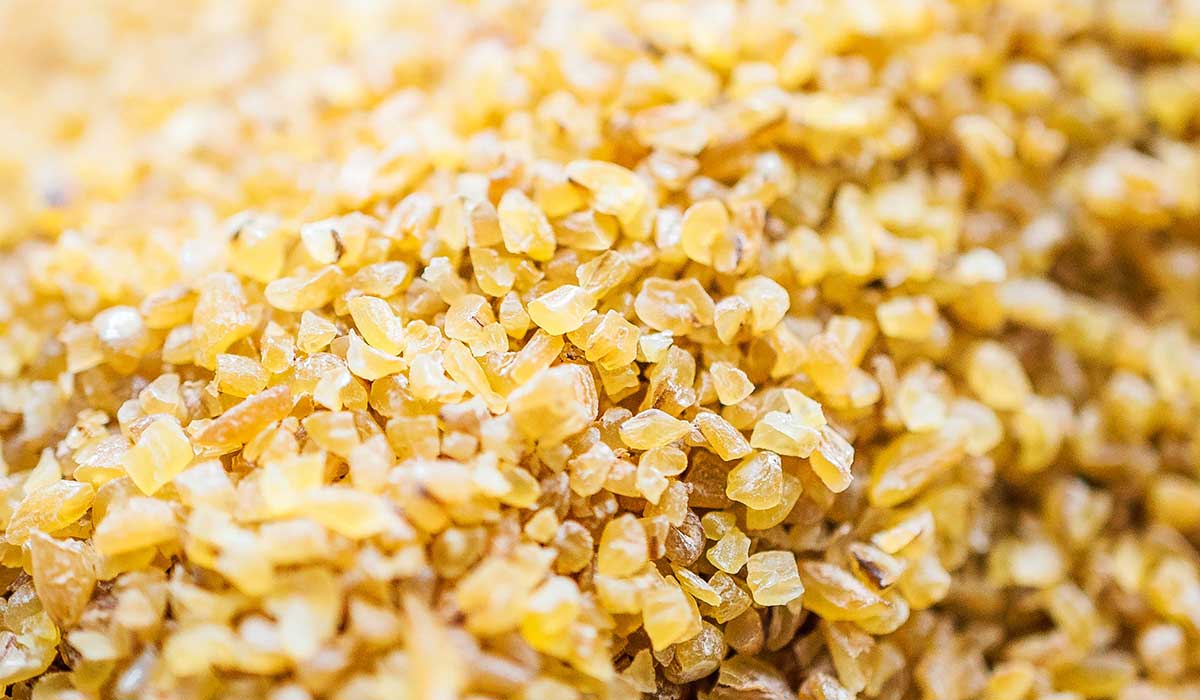
In the world of grains, Bulgur Wheat and Couscous stand out as versatile and nutritious options. Both grains have been a staple in various cuisines for centuries, offering unique flavors and textures to dishes. While they may appear similar, Bulgur Wheat and Couscous differ in their origin, production process, nutritional value, cooking methods, culinary uses, and health benefits. Understanding the characteristics of these grains will help you make informed decisions when incorporating them into your diet. In this article, we will explore the differences between Bulgur Wheat and Couscous, and highlight their individual features to help you make the most out of these grainy wonders.
Introduction To Bulgur Wheat And Couscous
Bulgur Wheat and Couscous are two popular grains that have been widely used in various cuisines around the world. Bulgur Wheat is a whole grain that is made from cracked wheat kernels that have been parboiled and dried. It has a slightly nutty flavor and a chewy texture, making it perfect for salads, pilafs, and stuffing. On the other hand, Couscous is made from semolina wheat and is a staple in North African and Middle Eastern cuisine. It has a light and fluffy texture, and it is often used as a base for stews and as a side dish. Both grains offer unique flavors and can be a nutritious addition to your meals.
Differences In Origin And Production Process
Bulgur wheat and couscous differ not only in their taste and texture but also in their origin and production process. Bulgur wheat is traditionally made from cracked wheat kernels that have been parboiled and dried. This process retains the wheat germ and bran, making it a whole grain with higher fiber content. On the other hand, couscous is made from semolina wheat, which is obtained by crushing the inner wheat endosperm. Couscous is then formed into small granules through a process of rolling and shaping. This difference in production process gives bulgur wheat a slightly chewy texture, while couscous has a light and fluffy consistency. So, whether you prefer the hearty bite of bulgur wheat or the delicate fluffiness of couscous, both grains offer unique culinary experiences.
Nutritional Value
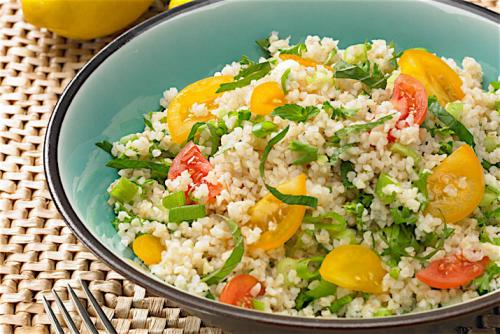
Both bulgur wheat and couscous offer various nutritional benefits. Bulgur wheat is known for its high fiber content, with one cup providing about 8 grams of fiber. It is also a good source of essential minerals such as iron, magnesium, and manganese. Couscous, on the other hand, contains slightly less fiber, with one cup providing around 2 grams. However, it is a good source of complex carbohydrates and low in fat. Both grains are also rich in protein, making them a nutritious addition to any diet.
Nutritional Content Of Bulgur Wheat
Bulgur wheat is widely recognized for its impressive nutritional profile. It is a rich source of dietary fiber, providing approximately 8 grams of fiber per cup. This high fiber content aids in digestion, promotes satiety, and helps maintain a healthy weight. Additionally, bulgur wheat is packed with essential minerals like iron, magnesium, and manganese, which are essential for various bodily functions. It is also a good source of protein, making it a suitable choice for vegetarians and vegans. Adding bulgur wheat to your diet can help satisfy your nutritional needs while adding a delicious and nutty flavor to your meals.
Nutritional Content Of Couscous
Couscous is a versatile grain that offers a decent nutritional profile. It is low in fat and provides a good amount of protein, with approximately 6 grams per cup. It also contains essential minerals such as manganese, selenium, and phosphorus. However, couscous tends to have less fiber compared to bulgur wheat, with only around 2 grams per cup. Despite this, it is still a nutritious option to include in your diet. Its light and fluffy texture make it a popular choice in various dishes, providing a satisfying and wholesome meal.
Cooking Methods
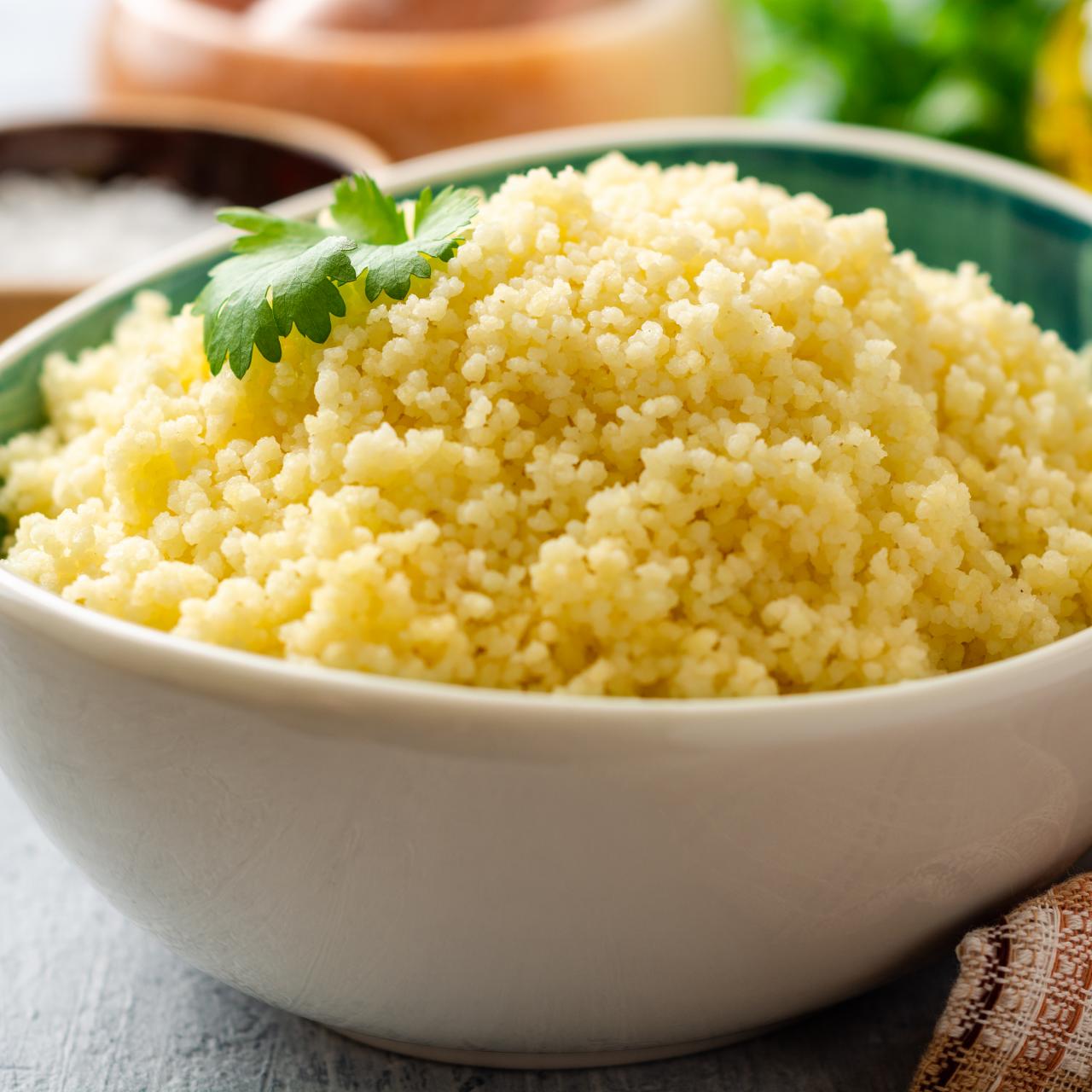
When it comes to cooking methods, both bulgur wheat and couscous offer quick and easy preparation options. Bulgur wheat can be prepared by simply boiling it in water or broth until tender, which usually takes about 10-15 minutes. It can also be soaked in hot water for a shorter cooking time. On the other hand, couscous is typically cooked by steaming or soaking it in hot water. Once the liquid is absorbed, fluff the grains with a fork. These cooking methods ensure that both grains maintain their fluffy and light texture, making them versatile ingredients for various dishes.
Best Cooking Methods For Bulgur Wheat
When it comes to cooking Bulgur Wheat, there are a few methods that work best. The most common method is boiling it in water or broth until it is tender, which usually takes about 10-15 minutes. You can also choose to soak the Bulgur Wheat in hot water or broth for a shorter cooking time. Another option is to cook it in a rice cooker or use a microwave, following the instructions on the package. These cooking methods ensure that the Bulgur Wheat is properly cooked and retains its chewy texture and nutty flavor.
Best Cooking Methods For Couscous
To cook couscous, the most common method is to steam it. Simply bring water or broth to a boil, then pour it over the couscous in a heatproof bowl and cover tightly with a lid or plastic wrap. Let it sit for about 5 minutes to allow the couscous to absorb the liquid and become tender. Fluff the couscous with a fork to separate the grains before serving. Another option is to cook couscous in a microwave by placing it in a microwave-safe bowl with water or broth, covering it, and microwaving on high for a few minutes until fluffy. This method is quick and convenient, perfect for busy cooks.
Culinary Uses

Bulgur Wheat and Couscous have versatile culinary uses and can be incorporated into a wide range of dishes.
Bulgur Wheat is commonly used in Middle Eastern and Mediterranean cuisines. It is often used as a base for salads, such as tabbouleh, or as a stuffing for vegetables and meat. Bulgur Wheat can also be used to make pilafs, soups, and even desserts like puddings.
On the other hand, Couscous is popular in North African and Moroccan cuisines. It is typically served as a side dish, or as a base for stews and tagines. Couscous can also be used in salads, mixed with herbs, vegetables, and dressing for a refreshing and flavorful meal.
Both grains offer a pleasant texture and a neutral taste, making them suitable for a variety of flavor profiles and culinary creations. Their versatility allows chefs and home cooks to experiment and create delicious and nutritious dishes.
Traditional And Modern Culinary Uses Of Bulgur Wheat
Bulgur Wheat has been a staple in Middle Eastern and Mediterranean cuisines for centuries. It is commonly used to make traditional dishes such as tabbouleh, where it is mixed with fresh herbs, tomatoes, onions, and lemon juice. Bulgur Wheat is also used as a stuffing for vegetables like bell peppers, zucchini, and eggplant, adding a hearty and nutritious element to the dish. In more modern cooking, Bulgur Wheat is used in salads, pilafs, soups, and even desserts like puddings. Its versatility and nutty flavor make it a popular choice among chefs and home cooks alike.
Traditional And Modern Culinary Uses Of Couscous
Couscous has a rich history in North African and Middle Eastern cuisines. Traditionally, it is steamed and served as a base for flavorful stews and tagines. Couscous can also be used in salads, mixed with vegetables, herbs, and dressing for a refreshing side dish. In modern cooking, couscous is often incorporated into fusion dishes, like couscous bowls or stuffed vegetables. Its small, grain-like texture makes it versatile and easy to mix with various ingredients, allowing it to absorb flavors and create a satisfying meal. Whether used in traditional or modern recipes, couscous adds a delightful taste and texture to any dish.
Health Benefits
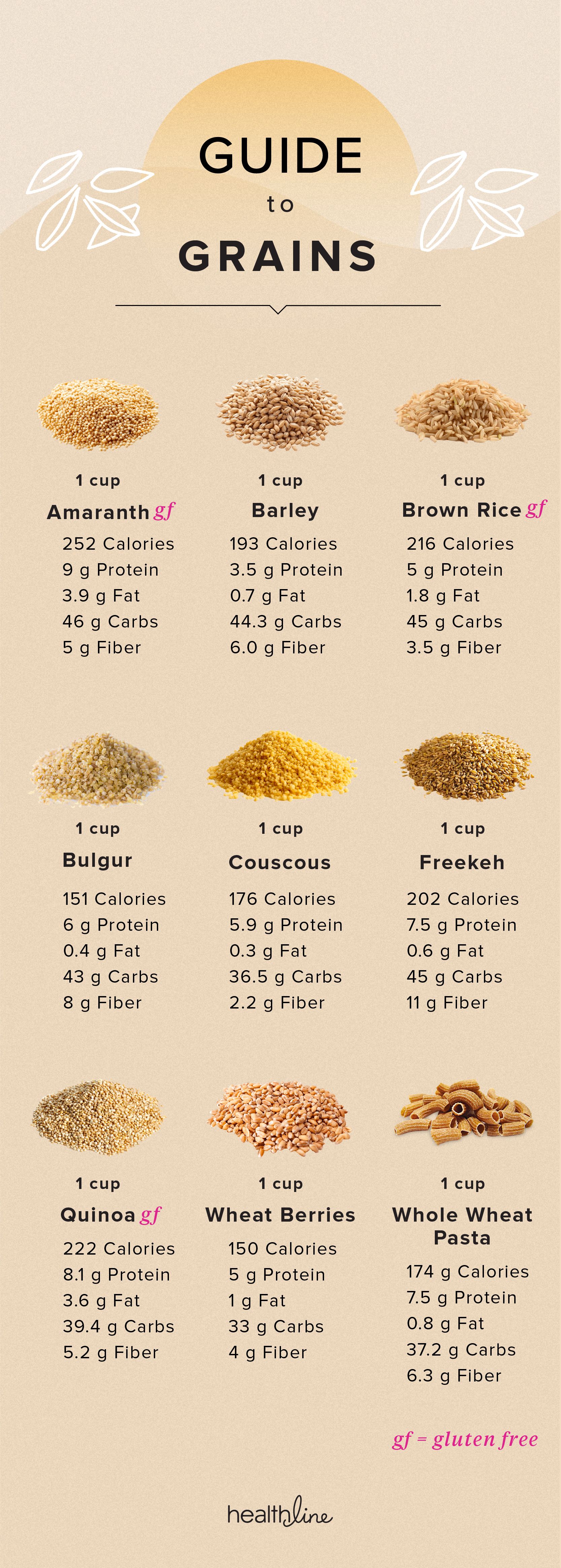
Both bulgur wheat and couscous offer several health benefits. Bulgur wheat is a good source of fiber, which aids in digestion and helps maintain a healthy weight. It also contains vitamins and minerals such as iron, magnesium, and B vitamins, which support overall health and energy production. Couscous, on the other hand, is low in fat and cholesterol and contains essential nutrients like selenium, which has antioxidant properties. Additionally, both grains have a low glycemic index, making them suitable for controlling blood sugar levels. Incorporating bulgur wheat and couscous into your diet can contribute to a well-rounded and nutritious meal plan.
Health Benefits Of Consuming Bulgur Wheat
Bulgur wheat offers several health benefits. It is a good source of fiber, which aids in digestion and helps maintain a healthy weight. The fiber content also promotes a feeling of fullness, which can prevent overeating. Additionally, bulgur wheat contains essential vitamins and minerals such as iron, magnesium, and B vitamins, which support overall health and energy production. These nutrients also contribute to a strong immune system and promote healthy skin and hair. Incorporating bulgur wheat into your diet can provide a nutritious and delicious addition to your meals.
Health Benefits Of Consuming Couscous
Couscous offers several health benefits. It is a good source of complex carbohydrates, which provide the body with sustained energy. It is also low in fat and contains no cholesterol, making it a heart-healthy choice. Additionally, couscous is rich in selenium, a mineral that acts as an antioxidant and helps protect the body from oxidative stress. It is also a good source of plant-based protein, fiber, and vitamins such as vitamin B6 and niacin. Incorporating couscous into your diet can support digestion, boost energy levels, and promote overall well-being.
Conclusion
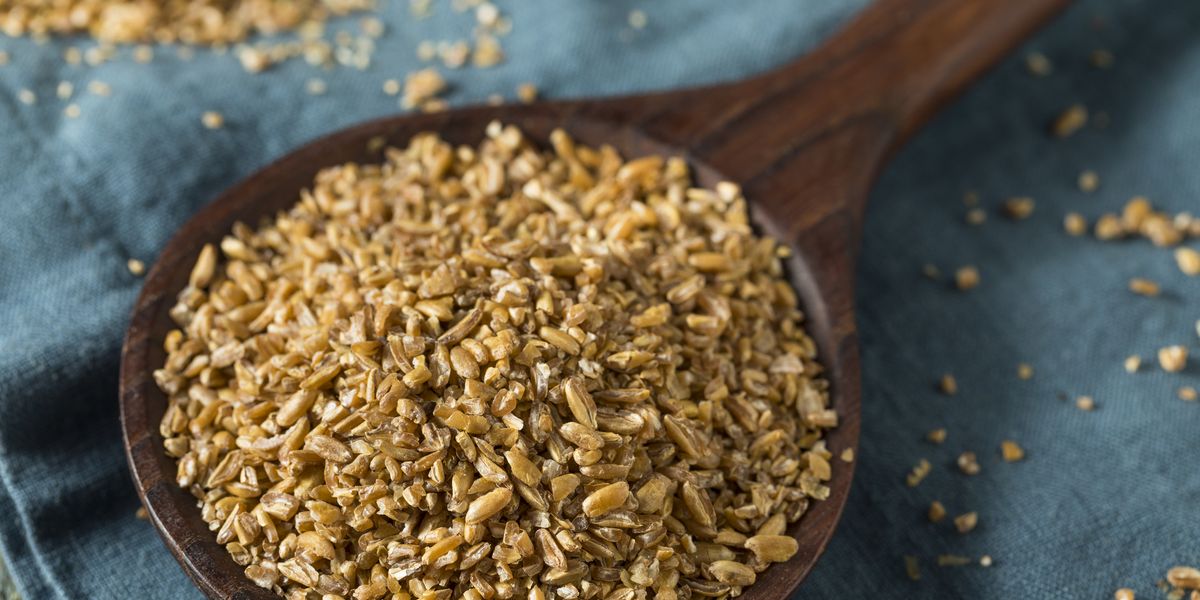
In conclusion, both bulgur wheat and couscous have their own unique characteristics and nutritional benefits. Bulgur wheat is a whole grain that offers more fiber, essential nutrients, and a lower calorie content. On the other hand, couscous is a versatile and quick-cooking grain that provides sustained energy and is a good source of plant-based protein. Both grains can be incorporated into a balanced diet to promote overall health and well-being. Whether you choose bulgur wheat or couscous, adding these grains to your meals can enhance your culinary experiences and support a healthy lifestyle.
Comparison Of Bulgur Wheat And Couscous
When comparing bulgur wheat and couscous, it is clear that both grains have their own unique properties. Bulgur wheat, being a whole grain, offers more fiber, essential nutrients, and fewer calories compared to couscous. It provides sustained energy and promotes digestive health. On the other hand, couscous is a versatile grain that is quick to cook and can be used in various dishes. It is a good source of plant-based protein and can provide a fulfilling meal. Ultimately, the choice between bulgur wheat and couscous depends on individual preferences and dietary needs.
Tips For Incorporating Both Grains Into A Balanced Diet
To incorporate both bulgur wheat and couscous into a balanced diet, consider the following tips:
- Mix it up: Use both grains interchangeably in recipes to add variety to your meals. For example, swap couscous for bulgur in tabbouleh salad or use bulgur as a base for Mediterranean-style grain bowls.
- Boost the nutrition: Add vegetables, protein, and healthy fats to your grain dishes. Consider topping your bulgur or couscous with roasted vegetables, grilled chicken or fish, and a sprinkle of nuts or seeds for added nutrients.
- Experiment with flavors: Explore different cuisines and seasonings to enhance the flavors of your grain dishes. For instance, use Mediterranean spices like garlic, lemon, and olive oil for a refreshing twist or try Moroccan-inspired spices such as cumin, cinnamon, and paprika for a warm and aromatic flavor.
- Portion control: While bulgur and couscous are nutritious, they still contain calories. Be mindful of portion sizes and balance them with other food groups to create a well-rounded meal.
- Serve it cold or hot: Enjoy bulgur and couscous in various forms, whether it’s as a warm side dish, a cold salad, or even as a stuffing for vegetables. Experiment with different temperatures to find your favorite way to enjoy these grains.
Incorporating both bulgur wheat and couscous into your diet can provide a wide range of flavors, textures, and nutritional benefits, keeping your meals interesting and balanced.
FAQ About Bulgur Wheat Vs Couscous: Grainy Goodness Unveiled
Q: What is Bulgur Wheat?
A: Bulgur wheat is a whole grain made from cracked wheat kernels that have been parboiled and dried.
Q: What is Couscous?
A: Couscous is a type of North African semolina wheat pasta made from crushed durum wheat.
Q: How are Bulgur Wheat and Couscous different?
A: Bulgur wheat has a nuttier flavor and chewier texture compared to the lighter and fluffier couscous.
Q: How are Bulgur Wheat and Couscous similar?
A: Both Bulgur wheat and couscous are versatile grains that can be used as a base for various dishes and salads.
Q: Which one is healthier, Bulgur Wheat, or Couscous?
A: Bulgur wheat is considered slightly healthier as it is higher in fiber, protein, and nutrients compared to couscous.
Q: Can Bulgur Wheat and Couscous be used interchangeably in recipes?
A: Yes, they can be used interchangeably in many recipes, but the texture and flavor may vary slightly.

Duke City Kitchen, known for its fresh, simple, and delicious cuisine, has a rich history deeply rooted in the heart of the local food scene. Since its inception, Duke City Kitchen has been dedicated to providing an exceptional dining experience that celebrates the region’s flavors. Founded by a passionate group of food enthusiasts, Duke City Kitchen opened its doors with the vision of offering a welcoming space where people could gather to enjoy thoughtfully prepared meals made from the finest, locally sourced ingredients. This commitment to quality and community has been a driving force behind Duke City Kitchen’s success.